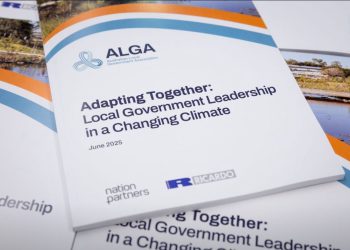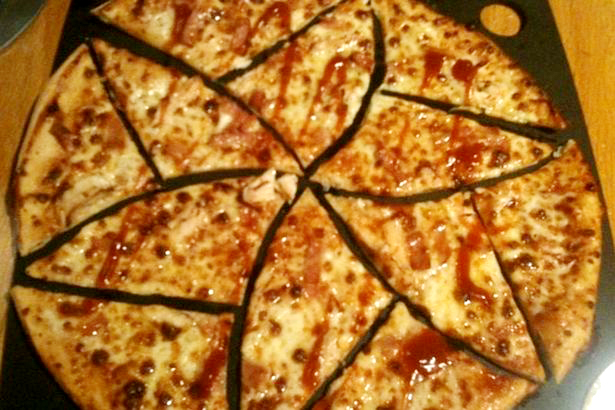
 Peter Gash is the Managing Director, Custodian, and Steward of the Lady Elliot Island Eco Resort on the Southern end of the Great Barrier Reef and Chief Pilot of Seair Pacific.
Peter Gash is the Managing Director, Custodian, and Steward of the Lady Elliot Island Eco Resort on the Southern end of the Great Barrier Reef and Chief Pilot of Seair Pacific.
He is widely skilled across numerous industries including Aviation, Tourism, Marine and Environmental Protection. Peter spoke recently at a GAPDL networking breakfast in Gladstone where he spoke about Lady Elliot Island story, and how it has been rescued from mining, goats, lack of love and almost certain failure. It is now considered one of the Jewels in the crown of the Great Barrier Reef Marine Park.
“When the beautiful young lady, now my wife of 33 years, and I visited Lady Elliot in 1980, we were energetic and enthusiastic. Julie was 16 and I was 21. We fell in love with the place and all its inhabitants and beauty. We had no money but we had big hearts, loads of passion, plenty of courage and a real and powerful desire to make a difference,” Peter said.
Peter, when did you decide to focus on sustainability at Lady Elliot Island?
It was a developing plan in my mind throughout 1995-2005, prior to having the lease on Lady Elliot Island (LEI). Once we took over the lease, we were able to go full steam ahead and implement the ideas and environmental initiatives we had been planning the previous ten years.
What does sustainability and sustainable tourism mean for you personally?
Sustainability and sustainable tourism means ensuring that whatever we do today does not have a negative impact on the Island, the reef or the greater planet for tomorrow. It means leaving the world a better place than we found it.
Which areas do you find the most difficult to gear towards sustainability?
Waste management is definitely the most challenging area of sustainability and has to be done within the guidelines of conservation and our lease requirements with the Great Barrier Reef Marine Park Authority.
“Recyclable waste is removed by barge every three months – an 18 hour trip to Gladstone on mainland Australia.”
“We are all blessed with knowledge and opportunities today that our parents and grandparents did not have. They did their best with the knowledge and resources they had and the challenges of the times they lived in. But there now exists, on the planet, a different set of conditions than our predecessors lived under. We have knowledge at our fingertips and the ability to share that knowledge to achieve things never before imagined. We now have no excuse for not taking positive sustainable action!”

Lady Elliot Island (LEI) is part of the World Heritage-listed Great Barrier Reef (GBR) which is one of the most diverse and complex ecosystems in the world.
Lady Elliot Island Eco Resort has been awarded Advanced Eco Certification by Ecotourism Australia. The Resort has been recognised as one of the leading ecologically sustainable tourism operators on the Great Barrier Reef, providing guests with an opportunity to experience and learn about the Island’s unique ecosystem with minimal impact. Only a limited number of guests are allowed on the Island at any one time and all activities are conducted in accordance with best practice and minimal impact guidelines to ensure no damage occurs to the island or reef.
While they have a number of initiatives in place to protect the island, the most important is their Hybrid Power Solar System. Peter Gash explained exactly how they were able to transform into an almost fully renewable-energy powered island.
“Lady Elliot Island Resort has always made its own power using diesel generators. In 2005 when we took over the island the noisy diesel generators detracted from the experience for guests and crew. They were burning 550 litres of diesel fuel daily.
About 200,000 litres per year, an enormous cost impost on island management, But more critically on the natural environment, over 500 tonnes of greenhouse gas emissions each year, as well as the associated risk from storage, spillage and other environmental dangers.
For the past 8 years, we have converted to solar power creating a Hybrid Solar Power Station.
We now make most of our power from renewable sunlight. We believed we had to take steps in this direction we knew it was right for the protection and sustainability of this special environment and for the good of the whole planet.
Some said we would never achieve 50{7a2eb471754f58cbf59baa93ee81dc7b74d186cb2e306188f39c85ba863dbab8} fuel burn reduction especially when desalinating fresh water every day, filling dive tanks with compressed air and using lots of power cooking hundreds of meals for guests and crew daily but we went ahead and built it anyway. We now burn under 100 litres per day, over 80{7a2eb471754f58cbf59baa93ee81dc7b74d186cb2e306188f39c85ba863dbab8} saving from when we started on this exciting journey, and our occupancy is over double what it was in those early years. We have saved almost $200k each year on fuel burn.
The project cost us $600k to build, so we had the system paid back in around 3 years. What a remarkable return on investment.
Julie and I now reinvest all these continuing annual savings back into the island’s development. As we see it this is a very important part of the equation; giving back. Doing environmentally clever things with those savings, things that will improve and make real and sustainable differences for people, for the reef, for the planet and for the financial viability of our business.
We have continued to add more solar each year we now have over 400 panels renewable, free energy fresh daily direct from the sun.
Until a few months ago our desalination system accounted for one-third of our total power requirements taking 15 hours each day just to make our water! But, using savings from our fuel burn reductions we recently invested into new technology desalination system which makes the same volume of water but in 6 less hours and now works in the “solar window” when we have sunlight, saving greatly on fuel burn.
Our goal is 100{7a2eb471754f58cbf59baa93ee81dc7b74d186cb2e306188f39c85ba863dbab8} renewable energy and we won’t give up until we achieve it. We are extremely proud of our Teams accomplishments so far, we are running a small village on the Island doing the same things you do here on the mainland but we have an added burden of desalinating our fresh water needs, managing all our waste water, waste products in a World Heritage Marine National Park.”
Congratulations to Peter, Julie and their team!
Want to read the full article?
Subscribe today to get full access!
Subscribe Now
Subscribe to support local journalism get unlimited access to all Gladstone News content!Already subscribed?
Login to your account via the main menu.























